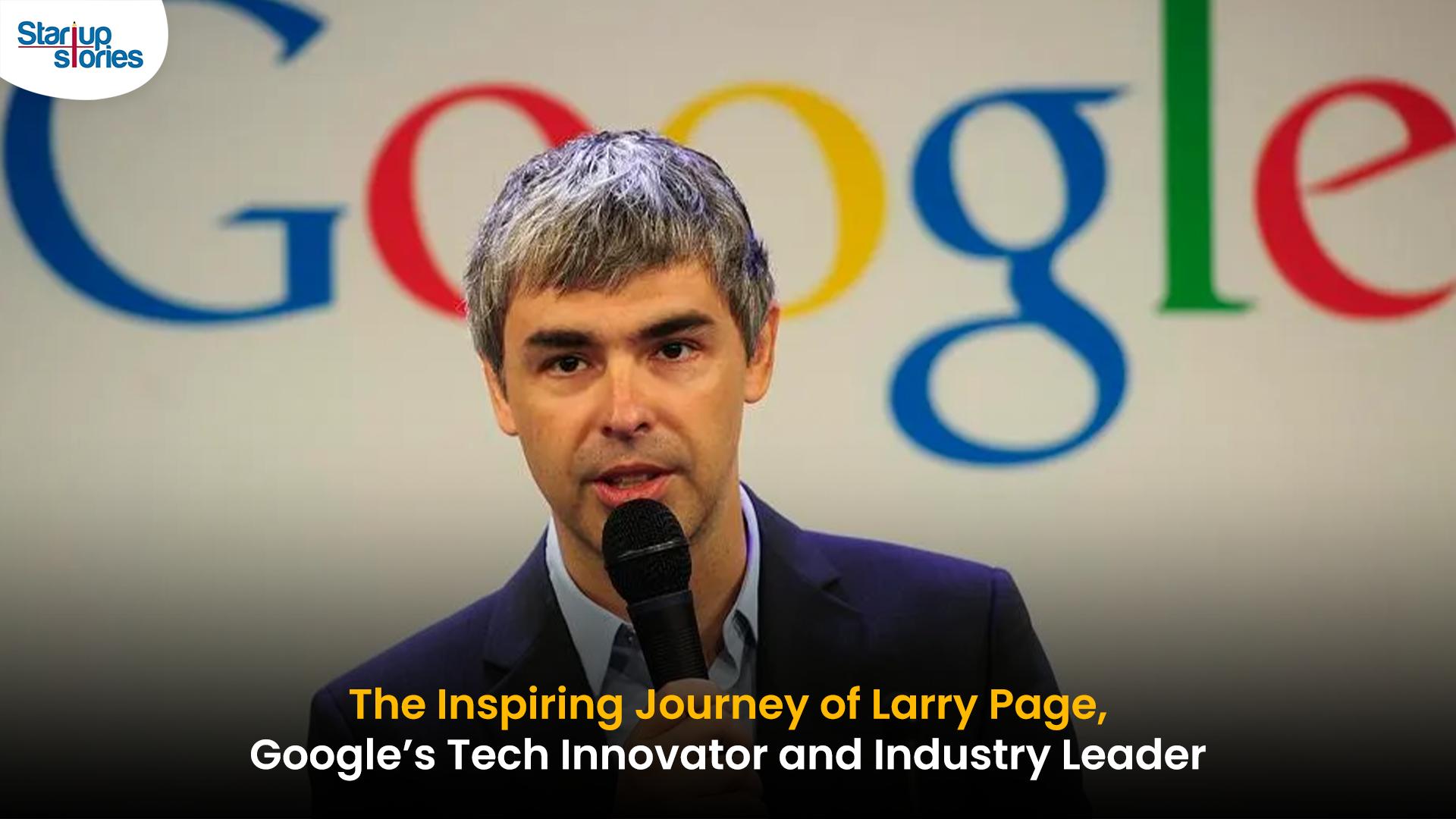Entrepreneur Stories
Uber: Unknown Facts About The Ride Sharing App

Uber, the ride sharing app that lets you book a cab with just the tap of a button, had a very humble beginning. Founded by a college dropout, Travis Kalanick, who dreamed of making it big in the world, the app now has a presence in 195 countries! While there are a lot of things one knows about this startup, there is still a lot to discover. Check out these lesser known facts about Uber here!
1. An iPhone for every driver

In an attempt to unify the drivers with one type of device, the company equipped all its drivers with an iPhone. Through this phone, the drivers can track and contact users who have booked a ride. However, the phone is locked for personal use and is made available only for people employed by Uber!
2. Uber had a different name when it started

Did you know when Travis first brought Uber to the public, it had a different name? Uber was initially called Ubercab. However, the company was issued with a cease and desist order as Travis was operating the company that offered a cab service, without having the required license to do so. Incidentally, this name change proved to be a blessing in disguise, propelling Uber into a massive superpower!
3. Uber used its equity for its URL

Uber’s unique trademark URL, Uber.com, wasn’t achieved the normal way. Travis and his team had to trade Uber’s equity to get control of this website and boy, did it work in their favour! This move came to be after the cease and desist order against Ubercab. However, over the course of time, Travis eventually bought back the 2 % stake for a whopping $ 1 million!
4. Uber cabs can’t be more than 10 years old

Every cab used by Uber drivers has to be no less than 10 years old. Every car gets upgraded the moment it reaches that ten year mark, making sure all the cabs are in perfect condition when on the road. Furthermore, all the cars used by Uber are required to have four doors and no less!
5. Uber has four types of drivers

Uber hires and classifies its drivers according to their experience. Currently, there are four types of drivers on Uber’s roster: Pros, Enthusiasts, Crossovers and Part Time. In some cases, when inspections of other cabs are carried, the drivers on the top of the chain are the ones who carry out these surveys and checks.
6. Tips are not a part of the bill

Riders are not allowed to tip the drivers. In fact, as of 2016, drivers were not allowed to say the word “tip” while talking to a customer! According to the hiring policy, Uber drivers keep 80 % of the money they make while only 20 % goes back to the company. This ensures equal pay between both the drivers and the parent company, leaving no room for the requirement of tips.
7. Uber drivers are forced to take selfies

While facial recognition software is often used to confirm a driver’s identity, some Uber drivers are forced to take selfies. Using a tool called Real Time ID check, the cab service Company forces some of its drivers to take a selfie as proof of their identity. Did you know certain drivers are rejected because of how they look in their pictures alone? Talk about bad lighting!
If you think we missed out on any other facts about Uber, comment and let us know!
Videos
T.N. Seshan: The Fearless Reformer Who Redefined Indian Democracy

T.N. Seshan’s name stands tall in India’s history as the man who transformed the nation’s electoral system with extraordinary courage and integrity. Born in 1932 in Kerala, Seshan grew up with values of discipline, education, and service to the nation — virtues that shaped his illustrious journey. From his early brilliance at Madras Christian College to his advanced studies in public administration at Harvard University, Seshan’s path reflected rare determination and intellect. Joining the Indian Administrative Service in 1955, he built a reputation as a no‑nonsense officer committed to efficiency and honesty, serving in key roles such as Secretary of Defense and overseeing vital national programs.
As the Chief Election Commissioner of India in 1990, T.N. Seshan sparked a new era of electoral integrity. In a system once marred by corruption, violence, and malpractice, Seshan brought order, fear, and respect through his groundbreaking reforms. He introduced voter ID cards, imposed strict spending limits on campaigns, and insisted on transparency at every level of the election process. Despite criticism from political circles that labeled him dictatorial, his relentless pursuit of fairness empowered every citizen to vote fearlessly. Under his leadership, the Election Commission became a symbol of strength and integrity in Indian democracy.
Seshan’s passing in November 2019 marked the end of an era, but his message continues to resonate across generations. Leaders from every corner of the country mourned the loss of the man who restored faith in free and fair elections. His enduring legacy reminds us that true leadership lies not in wielding power, but in serving people with honesty, courage, and conviction. T.N. Seshan’s life remains a timeless inspiration a reminder that democracy thrives only when its citizens are vigilant, responsible, and fearless.
Entrepreneur Stories
Indian Man Quits JPMorgan, Takes 70% Pay Cut to Launch $6 Million Startup

Leaving behind a high-paying job at JPMorgan, an Indian entrepreneur embraced a 70% salary cut to pursue true purpose and passion in the startup world. Disenchanted with what he described as a “robotic” corporate routine, he sought meaningful work that made a real impact. This pivotal decision marked the beginning of his new journey, one focused on value creation rather than titles and corporate perks.
Powered by resilience and fresh perspective, the entrepreneur launched his own startup, prioritizing innovation and hands-on solutions. The road was challenging, but his vision resonated with the market: the startup quickly gained traction and raised $6 million—an impressive acknowledgement of its potential in a competitive landscape. Every hard lesson from early setbacks and bootstrapping paid off in real customer growth and investor confidence.
Today, his journey stands as an inspiring example for professionals seeking authentic success outside the corporate grind. By trading comfort for creative freedom, he grew a venture that solves important problems, generates jobs, and builds wealth beyond just salary. For ambitious founders, his story highlights the power of risk-taking, adaptability, and relentless focus on impact in India’s thriving startup ecosystem.
Videos
Larry Page: The Visionary Co-Founder Behind Google’s Global Success

Larry Page is a visionary technology entrepreneur and co-founder of Google, one of the world’s most influential companies. Born in 1973 in Michigan, Page grew up surrounded by computer technology, which inspired his passion for innovation from an early age. He studied computer engineering at the University of Michigan and later pursued his PhD at Stanford University, where he developed the revolutionary PageRank algorithm with Sergey Brin. This technology fundamentally changed the way search engines rank websites, making Google the most accurate and popular search engine globally.
The journey of Larry Page and Google began in 1998 when they officially launched the search engine from a small garage. Leveraging their unique algorithm, Google quickly surpassed competitors due to its ability to deliver highly relevant search results, transforming internet search forever. Under Larry Page’s leadership as CEO, Google expanded beyond search to launch groundbreaking products including YouTube, Gmail, and Google Maps, turning it into a global tech powerhouse that shapes how we access and interact with information online.
Larry Page later became the CEO of Google’s parent company, Alphabet Inc., driving innovation and investment in next-generation technologies such as artificial intelligence, autonomous vehicles, and healthcare solutions. His visionary leadership and commitment to technological advancement have cemented his legacy as one of the most influential figures in the tech industry. Today, Larry Page remains a key influencer in shaping the future of technology and digital innovation worldwide.















Zqvqrzlf
May 26, 2025 at 4:29 pm
Explore the ranked best online casinos of 2025. Compare bonuses, game selections, and trustworthiness of top platforms for secure and rewarding gameplaycasino activities.
hbns2
June 7, 2025 at 12:26 pm
can i get generic clomid pills clomiphene only cycle how to buy clomiphene price how can i get clomiphene no prescription clomid price at clicks where to buy clomid tablets where to buy generic clomiphene no prescription
xpzbsrfnb
July 17, 2025 at 6:15 pm
Podaj opis o długości nieprzekraczającej 375 znaków do swojego widgetu: Słodycze obok owoców stanowią częsty motyw przewodni automatów hazardowych. Być może jest to zasługa ogromnej popularności mobilnych gier w rodzaju Candy Crush Saga? Sugar Rush od Pragmatic Play stanowi miły akcent w portfolio tego świetnego producenta. Obok Sweet Bonanza jest to dziś jeden z popularniejszych automatów z rozszerzoną liczbą rzędów i bębnów. Gra toczy się tu na siatce o rozmiarach 7 na 7 pól zaś zwycięskie kombinacje zliczane są systemem clustrowym – nie ma tu więc tradycyjnych linii wypłat. Z procentem RTP wynoszącym zaledwie 95,24% Sugar Rush może nie być najlepszym wyborem dla każdego gracza. Jednak lista bonusów może budzić wątpliwości. Punkty bonusowe, symbole specjalne, darmowe spiny, a to wszystko o słodkim smaku i w kolorowej oprawie. Chcesz dowiedzieć się więcej? Nasi eksperci przygotowali dla Ciebie szczegółowy przegląd tego video slotu, więc usiądź wygodnie i czytaj dalej! Co więcej, możesz sam zakręcić bębnami w grze Sugar Rush demo dostępnej bezpośrednio na tej stronie.
https://lp.tintasrainha.com.br/2025/07/16/najnowsze-promocje-i-turnieje-w-bizzo-casino_1752673498/
Automat Sugar Rush 1000 ma siatkę 7×7, na której znajdują się kolorowe cukierki i żelki jako płatne symbole. Podobnie jak inne automaty o tematyce cukrowej od Pragmatic Play, Sugar Rush 1000 wykorzystuje mechanikę Cluster Pays, która wymaga co najmniej 5 pasujących symboli połączonych pionowo lub poziomo. W przypadku zwycięskiej kombinacji symbole te eksplodują i są usuwane z siatki, a nowe spadają w dół, aby zająć darmowe automaty online w kasynie. Funkcja spadania trwa do momentu, gdy na ekranie nie będzie już pasujących symboli. Embark on an incredible journey through the wonderful world of BonBon. Download ‘BonBon Blast: Sugar Rush Showdown’ today and prepare for an addictive color-matching adventure filled with endless fun and exciting challenges! Oba czynniki przekładają się na wrażenia z gry. Sloty o niskim RTP mogą zniechęcać mniejszymi wygranymi. Gracze, którzy poszukują regularnych wygranych, mogą być z kolei sfrustrowani tym, jak rzadko zdobywają gotówkę w slotach o wysokiej zmienności.
eushtrjqp
July 21, 2025 at 3:14 pm
Making the most of the different bonuses and promotions at the site can help you get the best bang for your buck when playing the Roobet Mission Uncrossable game. With a wide variety of offers from welcome bonuses to referral offers, VIP clubs, social media giveaways, and more. Claiming these different offers can help maximize your available bankroll. Mission Uncrossable Roobet is an engaging casino game where you guide a chicken across busy lanes for a chance to multiply your bet up to $1,000,000. By playing strategically, you have the potential to win big. This game combines the thrill of strategic gameplay with high-stakes rewards. Read on to learn the strategies to master Mission Uncrossable and maximize your winnings. These games share high-stakes excitement with Mission Uncrossable, offering plenty of ways to win big on Roobet.
https://wordpress-1220178-4341318.cloudwaysapps.com/know-your-risk-bonus-volatility-metrics-in-goal-demo-game-by-spribe/
Glory Casino has become a popular destination for online gambling enthusiasts seeking thrilling entertainment and lucrative opportunities. With its wide array of games, including slots, table games, and live dealer options, glory casino online offers an immersive experience for players of all skill levels. The platform boasts a user-friendly interface, secure payment methods, and attractive bonuses to enhance the gaming experience. Join melbet app for an exciting online casino experience. Play slots, table games, and live dealer games with top rewards! Join melbet app for an exciting online casino experience. Play slots, table games, and live dealer games with top rewards! Join melbet app for an exciting online casino experience. Play slots, table games, and live dealer games with top rewards!
iwin
November 6, 2025 at 4:55 pm
iwin – nền tảng game bài đổi thưởng uy tín, nơi bạn có thể thử vận may và tận hưởng nhiều tựa game hấp
谷歌站群
November 8, 2025 at 2:38 am
专业构建与管理谷歌站群网络,助力品牌实现全域流量的强势增长。谷歌站群
谷歌蜘蛛池
November 10, 2025 at 2:48 am
利用强大的谷歌蜘蛛池技术,大幅提升网站收录效率与页面抓取频率。谷歌蜘蛛池
J88
November 10, 2025 at 5:54 am
Đến với J88, bạn sẽ được trải nghiệm dịch vụ cá cược chuyên nghiệp cùng hàng ngàn sự kiện khuyến mãi độc quyền.
站群程序
November 12, 2025 at 4:58 pm
搭载智能站群程序,自动化搭建与管理,为SEO项目提供核心驱动力。站群程序
MM88
November 14, 2025 at 8:35 am
Với giao diện mượt mà và ưu đãi hấp dẫn, MM88 là lựa chọn lý tưởng cho các tín đồ giải trí trực tuyến.
MM88
November 18, 2025 at 4:40 pm
Khám phá thế giới giải trí trực tuyến đỉnh cao tại MM88, nơi mang đến những trải nghiệm cá cược thể thao và casino sống động.
GO88
November 23, 2025 at 3:48 am
Tham gia cộng đồng game thủ tại Go88 để trải nghiệm các trò chơi bài, poker phổ biến nhất hiện nay.
casino login ohne anmeldung
December 21, 2025 at 12:11 pm
Dieser Code ermöglicht neuen Spielern, einen großzügigen Willkommensbonus zu erhalten. Die Verwendung eines Verde Casino
Promo Code kann sich jedoch enorm auszahlen, da es Ihnen ermöglicht, mit zusätzlichem Guthaben oder Freispielen zu spielen, was Ihre Gewinnchancen deutlich erhöhen kann.
Zudem erfahren Sie, wie Sie den Promocode Verde Casino für den Willkommensbonus nutzen können, um bei Ihrem ersten Deposit von exklusiven Vorteileфn zu profitieren. So dürfen Sie beispielsweise nur maximal 1.500 Euro
pro Bonuspaket erhalten, während es in vielen anderen Casinos keine Obergrenze gibt.
Mit einem Verde Casino Aktionscode können Sie diese Vorteile
nutzen. Online Casinos bieten ständig wechselnde Promotionen an, von wöchentlichen Aktionen bis hin zu Willkommensangeboten und speziellen Aktionen, die die Anmeldung besonders
lohnenswert machen. Achten Sie darauf, nur seriöse Partnerseiten zu nutzen, um gültige Verde Casino
Promo Codes zu erhalten. So konnten Mitglieder beispielsweise als Erste
den Halloween-Code „NLHALLOWEEN50“ nutzen, der 50 Freispiele für Horror-Slots gab.
Newsletter-Abonnenten erhalten zudem häufig frühzeitigen Zugang zu saisonalen Aktionen. Bei Einzahlungsboni sehen Sie das zusätzliche Guthaben neben Ihrem Einzahlungssaldo.
References:
https://online-spielhallen.de/marvel-casino-ihr-leitfaden-zu-bonus-codes-und-mehr/